Labdi Ommes: The female musician who plays a 'man's' instrument
Kenya's music scene is arguably East Africa's biggest, but there is still great gender disparity, with most acts featuring only men.
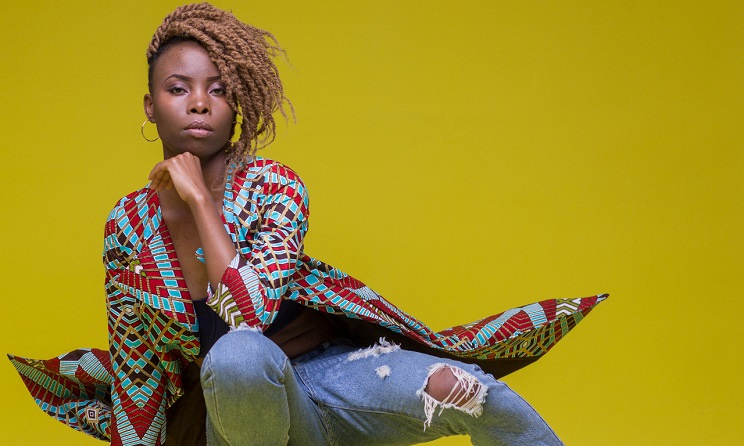 Orutu player Labdi Ommes.
Orutu player Labdi Ommes.
Musician Labdi Ommes says this trend should be challenged by allowing female musicians more space on stage. She also says that she wants to see more women playing traditional instruments such African percussion and her principle instrument, the orutu – a single-stringed fiddle traditionally played by men from the western part of Kenya, specifically from Luo-Nyanza.
“Deep down I knew that I needed to break the rules by playing it as a woman,” the 24 year old says. “I needed an instrument authentic to my existence to complement my voice. I knew for a fact that not many young people delve into the authentic arts and instruments, so I felt I had a role to play in the repopularisation of culture.”
Ommes loved to sing form an early age and although she didn’t grow up in a musical family, she discovered the beauty of music by listening to Beyoncé, Fatoumata Diawara, Rokia Traoré, Suzanna Owiyo, Maia Von Lekow and Sonah Jobarteh.
She says the urge to compose music gained momentum while she was in high school. “I wrote music for a girl band in high school, but I always felt like they never delivered the songs the way I wanted to hear them. So I decided to try it out myself after graduating.”
In 2013, she was selected for Sauti Academy's one-year Raw Talent artist development programme after making it through a number of gruelling auditions. But she dropped out three months into the programme after she was accepted to study fine art and major in interior design at Kenyatta University.
“I was devastated but as fate would have it I met a lecturer who taught the orutu. So because I could not join the class, I impulsively bought the instrument and taught myself how to play it.”
Although she was confident that venturing into music would be the best decision, nobody informed her that such a career path would come with its fair share of challenges.
“I remember a time when some people in the audience used to sneer at me. There have been a few situations where people, especially men, have been unwelcoming to the idea of me playing the orutu – and have been verbally aggressive and disrespectful.”
“But I kept playing regardless, and it’s become easier. However, there are places where I still cannot play, and it is very much okay," she says with laughter.
But the artist has been persistent, despite a slow burn to acceptance. She has now made the instrument her own and enjoys a positive response from her fans, most of whom are women.
“My goal is to discover new ways and dimensions of creating sound. Initially, I didn't have a vision for the instrument. I just listened to it, and it listened back, and I played it according to what I felt I wanted to hear.
“My biggest supporters have been women. I adore women, they are the reason for my sane existence on this planet. Women maintain balance. Women are my biggest supporters – I cannot say it enough.”
Ommes insists that her support for women and girls should not be labelled as feminist but rather as a cry to end inequality, stereotyping and the ambient discrimination directed at female musicians.
“My biggest supporters have been women – does that make them feminists? I don’t know. What I can tell you is that I have the urge to help other women find this career path easier in this business. I have to inspire a young girl. I don't need to tag it.”
















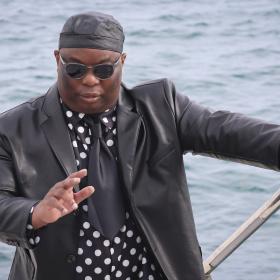
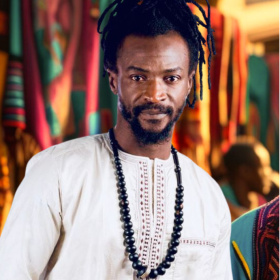
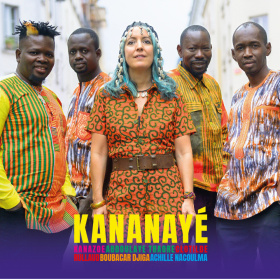





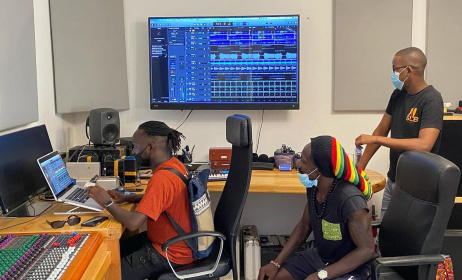



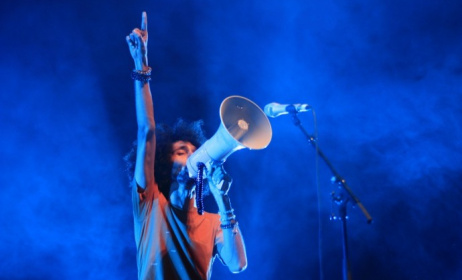

Commentaires
s'identifier or register to post comments